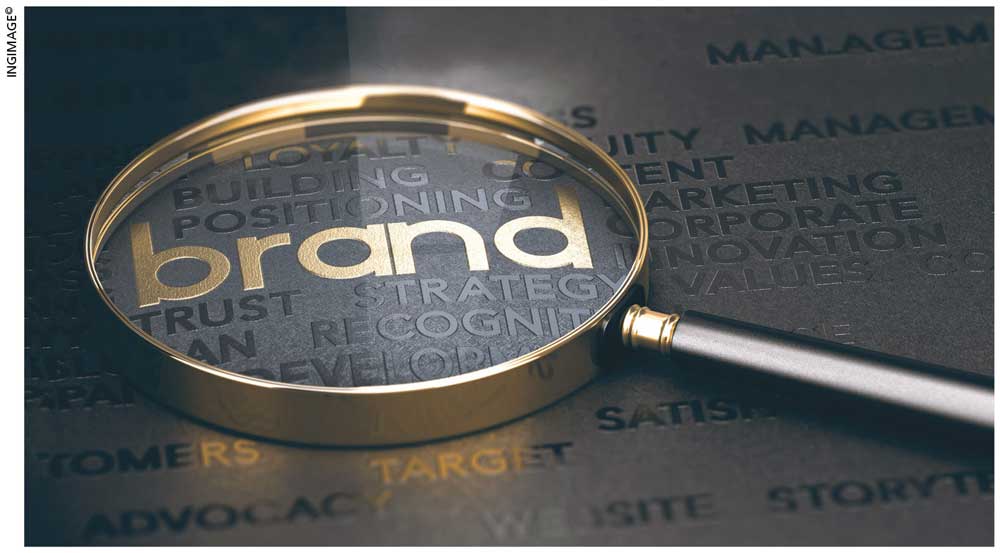
THE PRICELESS COMMODITY
Sohan Jayasena emphasises that trust is priceless in creating brand value

In the intricate tapestry of today’s global economy, the concept of a brand goes much further than the traditional norm. It is a beacon of identity, trust and resilience.
And in an era marked by geopolitical shifts, technological advancements and economic uncertainties, investing in your brand has transitioned from being a mere choice to an absolute necessity – to ensure business sustenance, longevity and growth.
Uncertainty plays a key role in macro dimensions such as inflation, supply chain instability, exchange rate and economic volatility, unstable regulatory policies, mounting taxes and complex human resource dynamics.
These hurdles don’t seem to be going away anytime soon; in fact, their instability is expected to rise. That is why brand investment in such a period is critical – confirming a strong brand can act as an anchor that holds your business together when the waters become stormy.
Since a brand has the capacity to influence every rupee, business operations will deliver particularly in periods of volatility, and corporate leadership and senior marketers will be able to leverage their brands effectively.
In an era of endless options and scepticism, trust is a priceless commodity. Having and owning a safe place in the heart of your customers is priceless. Investing in your brand and its experience, and creating a coherent image and narrative in your customers’ minds, will enable your brand to be trusted, resulting in economic gains. Patagonia is a case study of this.
We live in a world of emotion led buyers and product benefits are no longer the sole decisive factor. Consumers receive numerous messages from multiple businesses promising numerous benefits. Who and what they would choose (and why) boils down to which brand they feel most connected to.
This is particularly relevant if the product is a high involvement purchase. A consumer’s brain decodes the different messages, feelings, experiences and associations it has with the brand, and forges a bond that transcends transactions. Nike serves as an example of this.
Presently, businesses are in the unprecedented and relentless pursuit of high calibre employees in the talent market.
Investing in your brand as an employer of choice – and communicating a compelling vision and values that resonate with employees – will complement the attraction and retention efforts of a business, and garner benefits for it in multiple ways. Apple is a brand that does so.
The global supply chain is witnessing disruption like never before and businesses are busy stabilising their supply chains. Rising commodity prices, oil price volatility and high labour costs contribute to this uncertainty.
While all these are common to organisations, a business with a strong brand will be able to leverage it as a cushion and be impacted less, as suppliers are more inclined to offer favourable terms to brands they perceive as being committed and likely to thrive.
These advantages in terms of cost and favourable relations can substantially impact your bottom line, and provide opportunities for increased profitability. Brand investment isn’t only about consumer appeal; it also extends to strengthening the entire supply chain ecosystem. Toyota is such a brand.
Strong brands are often favoured by investors, lenders, banks and financial institutions. So while a strong brand garners benefits from customers, its outreach is broader, it impacts a wider range of stakeholders and enables better financial performance. This is the case with Rolex.
A brand acts as an anchor in your target consumer’s mind. In a world where the ocean of brands is constantly expanding, standing out and being recognised, trusted and liked by potential customers is invaluable.
Investing in your brand will enable your business to stand out with its differentiators, creating trust and affinity, and thereby generate economic value. Louis Vuitton is such an example.
Acquiring a new customer is 25 times more expensive than retaining an existing one. Investing in your brand pays dividends in the form of increased customer loyalty. A strong brand creates a distinct and memorable identity that resonates with customers, and forges an emotional connection.
This connection fosters trust and credibility, and encourages repeat purchases. Brand loyal customers move further into advocacy where they influence people around them and create further positive word-of-mouth publicity. They are less price sensitive and a strength to brands during economic downturns. This is the case with Harley-Davidson.
About 97 percent of your prospects are not ready to buy at the moment. However, every interaction, customer touch point and communication contributes to the narrative that shapes your brand’s position in a prospect’s mind.
That’s why enjoying ‘top of the mind awareness’ when a customer is ready to purchase gives the brand a definite advantage. Google is such a brand.
In conclusion, it’s evident that investment in your brand is critical and essential – especially during a period of instability and uncertainty. It enables your business to stand strong, be resilient and prosper.





